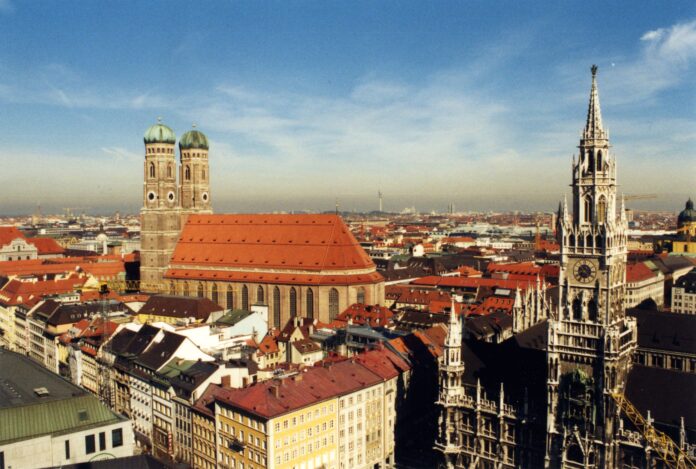Munich is a city that values tradition, riches, and beer. It is occasionally referred to be Italy’s outermost northern city. Naturally, your demands and lifestyle will determine how much it will cost to live in Munich.
However, Munich’s cost of living is higher than that of other German cities. Typically, you may anticipate spending €1,000 per month. This will primarily be for rent. One of the priciest cities in Germany is Munich. Living costs in Munich are much more expensive than that of a thriving financial center like Frankfurt.
Thus, if you intend to relocate here, you will be ready! Munich is not just a fantastic tourist destination but also a well-liked location for ex-pats from various sectors. These include the car industry, high-tech electronics, the film industry, and finance.
The cost of living in Munich
Of course, a lot relies on your lifestyle when determining how much a place will cost. Want to fill yourself with sushi every night in Bavaria? You may anticipate paying far more than someone who enjoys eating locally grown food. Here, we will look at the typical accommodation, electricity, and food prices. Let’s begin with a single resident in the city’s core.
The average monthly rent for a one-bedroom apartment starts at roughly €1,500, including utilities and food, which comes to about €200. You should budget roughly €2,000 monthly, including other costs like phone and internet contracts, public transportation tickets, and other miscellaneous charges.
You will require a larger budget if you consider the cost of living in Munich for a family of four. Up to €3,000 per month may be spent on a three-bedroom apartment in the city center, and utilities will cost at least another €200. Before factoring in extras like the internet and transportation, your monthly basic living expenses would exceed €4,000 when you add the price of food, which average €800.
What do serviced flats in Munich look like?
In Munich, various businesses offer entirely serviced, opulent flats, and some provide fully serviced homes. These might be offered in exclusive hotels or distinct home complexes. The degree of service you want is typically an option, including cleaning, laundry, breakfast, and room service.
Munich serviced apartment prices
Like hotels, serviced flats often bill by night; however, renting in Munich for more extended periods is frequently available and will ultimately be less expensive. Prices can range from $50 to $200 per night and are often all-inclusive, with supplementary services frequently being charged separately.
Read More: Each And Everything You Need To Know About Living Cost Warsaw
What does Munich believe to be a good wage?
A monthly net income of between 3,000 and 3,500 EUR is regarded as good pay in Munich. You can dine out, travel on weekends, and rent a two-bedroom apartment close to the city center with that money. According to various sources, the average wage in the Bavarian capital of Munich is 59,707 EUR. Managers make 119,436 EUR gross year on average, while skilled employees make 59,707 EUR.
The average salary for professionals and managers in the remainder of Bavaria is 41,403 EUR and 93,420 EUR, respectively. Munich has some of the highest incomes in Germany due to the high cost of living there. In Munich, the average monthly take-home pay is 5,430 EUR before taxes. It’s still a solid paycheck for a single person after taxes, allowing you to live comfortably. Two salaries are likely required for a family to live comfortably.
What to anticipate from a rental agreement for a serviced flat?
In contrast to hotels, where you must sign a complete tenancy agreement, serviced apartments often need you to sign a terms and conditions agreement. Especially for extended stays, some businesses will have longer contracts and need a deposit to cover damages. Typically, you will state how long you plan to stay up front and be allowed to extend the period based on availability.
Most leases or agreements stipulate that tenants must maintain the property’s original design and furnishings. In Munich, unfurnished apartments are sometimes rented out entirely without furnishings, including a kitchen or other appliances. These are ideal for tenants wishing to settle down and make the house their own because they are frequently available for extended leases.
Families searching for secure, long-term housing are attracted to unfurnished apartments in Germany because of the country’s significant renter population. One-bedroom flats to houses with four or five bedrooms may all be found unfurnished. Most of the time, tenants can decorate and make specific alterations to the fixtures and fittings, but first, read the leasing agreement or speak with the landlord to find out what is permitted and what is not.
So, how expensive is it to live in Munich?
Munich’s cost of living is relatively affordable compared to many other big global cities, such as London and New York. And fortunately, the earnings here are probably more than enough to pay your basic living expenses, leaving you with money to enjoy the museums, restaurants, and weekend getaways to the Alps.







